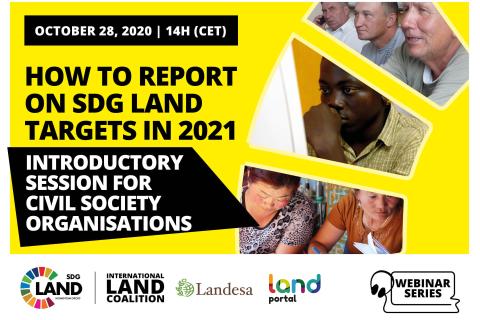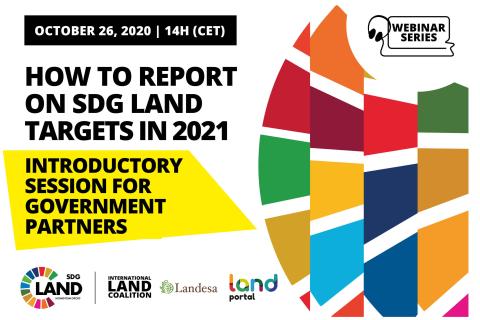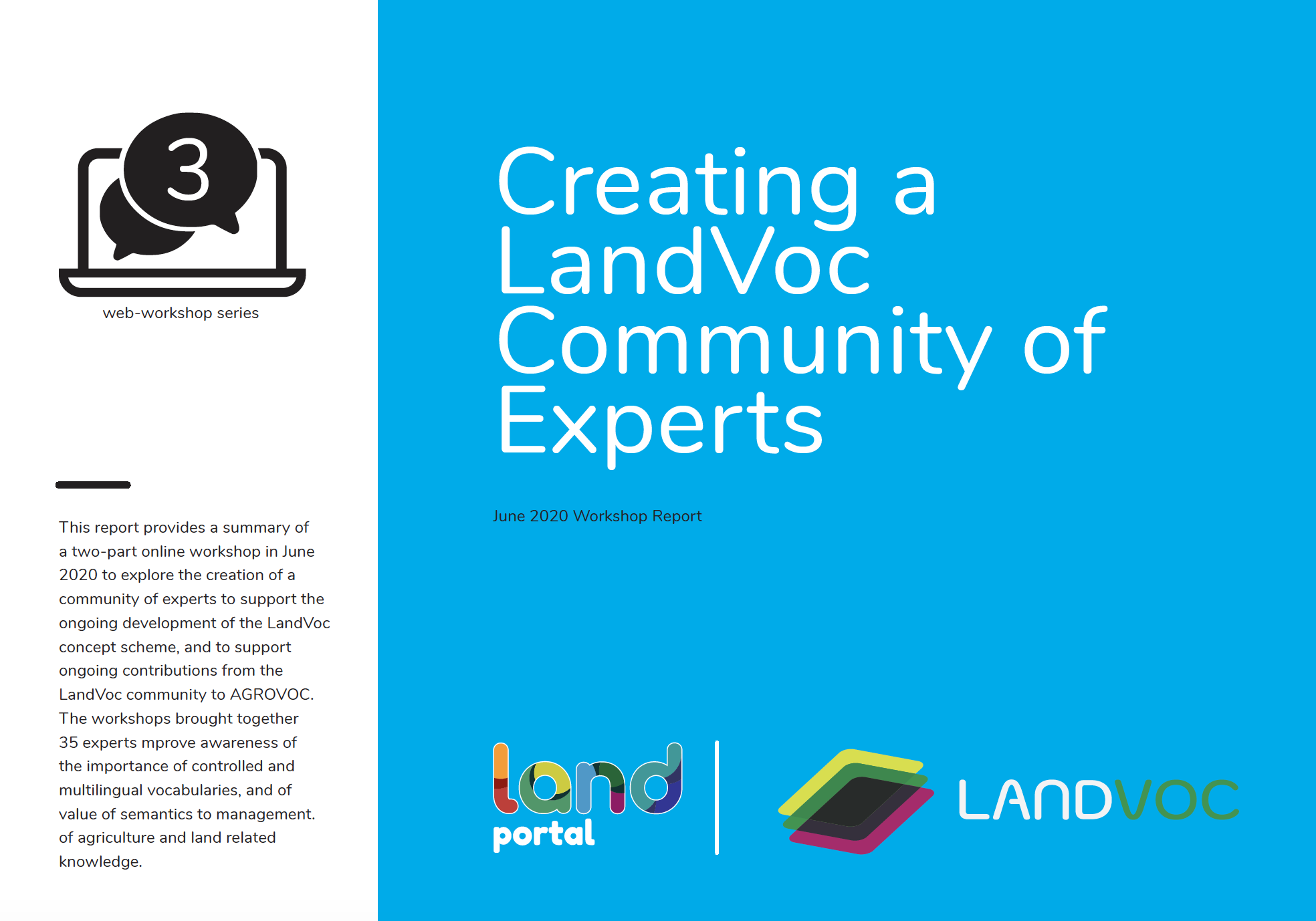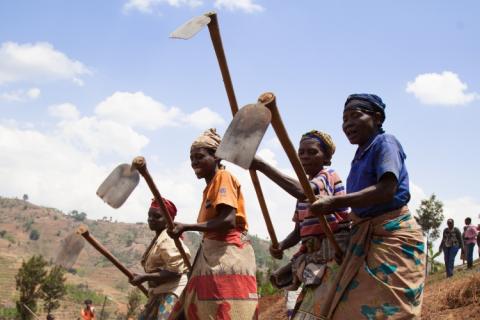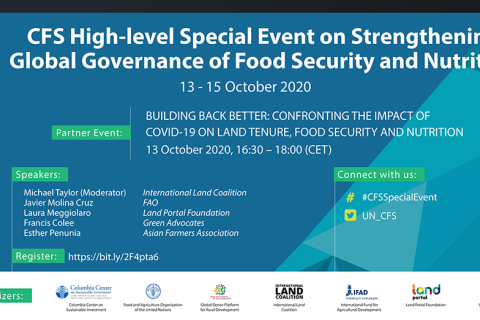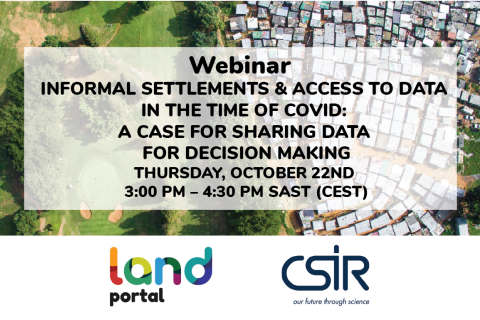Neil Sorensen joined the Land Portal as its Communications Specialist in October 2015. He has extensive experience leading communications for international organizations and developing relationships with civil society, donors, intergovernmental agencies, the media and the private sector. Previously, Neil worked for the International Fund for Agriculture Development (IFAD) as a Governing Bodies Officer and Strategic Adviser to the Secretary of IFAD. He has also led communications for three international organizations, including the International Land Coalition, the International Federation of Agricultural Producers (IFAP) and the International Federation of Organic Agriculture Movements (IFOAM). He holds a Master’s degree in Global Diplomacy from the University of London School of Oriental and African Studies (SOAS) as well as a Bachelor’s degree with a double major in German and Sociology from St. Cloud State University.
Details
Location
Contributions
Displaying 441 - 450 of 1145How to Report On SDG Land Targets in 2021: Introductory Session for Civil Society Organizations
All the UN member states have committed to achieve the Sustainable Development Targets by 2030. However, there is a clear gap between what is being committed and the delivery of the commitments. For example, in 2020 National Voluntary Reports only seven countries reported on specific land targets. No country reported on the all three key land targets.
How to Report On SDG Land Targets in 2021: Introductory Session for Government Partners
All the UN member states have committed to achieve the Sustainable Development Targets by 2030. However, there is a clear gap between what is being committed and the delivery of the commitments. For example, in 2020 National Voluntary Reports only seven countries reported on specific land targets. No country reported on the all three key land targets.
Creating a LandVoc Community of Experts
This report provides a summary of a two-part online workshop in June 2020 to explore the creation of a community of experts to support the ongoing development of the LandVoc concept scheme, and to support ongoing contributions from the LandVoc community to AGROVOC. The workshops brought together 35 experts mprove awareness of the importance of controlled and multilingual vocabularies, and of value of semantics to management. of agriculture and land related knowledge.
Land administration reform: part and parcel of an inclusive, resilient, and sustainable COVID-19 recovery
The impact of COVID-19 has been devastating around the world. In response, countries have put in place emergency measures to help their citizens and private firms weather the pandemic and recovery programs to boost the economy once the lockdown restrictions can ease.
Most developing economies do not have the fiscal space to implement broad recovery programs, as the revenues from key economic sectors have collapsed, expenditures to respond to the pandemic have escalated rapidly, and capital outflows have increased.
Building Back Better: Confronting the Impact of COVID-19 on Land Tenure, Food Security and Nutrition
Partners Event on coordinating a Covid-19 response while monitoring the effect on governance of tenure and determining how to build back better
Informal settlements and access to data in the time of COVID: a case for sharing data for decision making
The spread of COVID-19 in South Africa and other countries in the region has again brought to the fore the fact that very dense, under-serviced, mostly informal, settlements are not healthy places to live. They are also places where the spread of a disease is difficult to prevent or manage.
“No vaccine against deforestation”: COVID-19 webinar explores realities for Indigenous Peoples during the pandemic
COVID-19 has disproportionately impacted Indigenous Peoples around the world, cutting a swathe through communities with limited health facilities, disrupting already fragile economies and shining a harsh spotlight on the increased vulnerabilities created by insecure tenure in a time of global pandemic.
“We can still catch up”: webinar explores biodiversity and climate change in light of COVID-19
As the world struggles to deal with the shockwaves created by the Coronavirus pandemic, scientists have been drawing direct links between the emergence of new diseases, collapsing biodiversity and the destruction of vital forestlands which for generations have been stewarded by Indigenous Peoples and Local Communities.
Changing the lens: webinar tackles regulatory rollback and championing indigenous voices in the “green recovery”
COVID-19 has exacerbated an already deeply alarming regulatory vacuum, which is being exploited by unscrupulous governments and private sector operators to ramp up the destruction of vital indigenous forestlands – this threatens efforts to rebalance humanity’s relationship to nature with indigenous and local voices at its heart.
Community Forest Rights and the Pandemic
India is currently among the most affected countries by COVID19, recording over 6 million cases, by September 30 2020. The pandemic and lockdown measures have had a drastic impact on a large population of poor and marginalisedcommunities, causing loss of livelihoods and employment, food insecurity and socio-economic distress.


